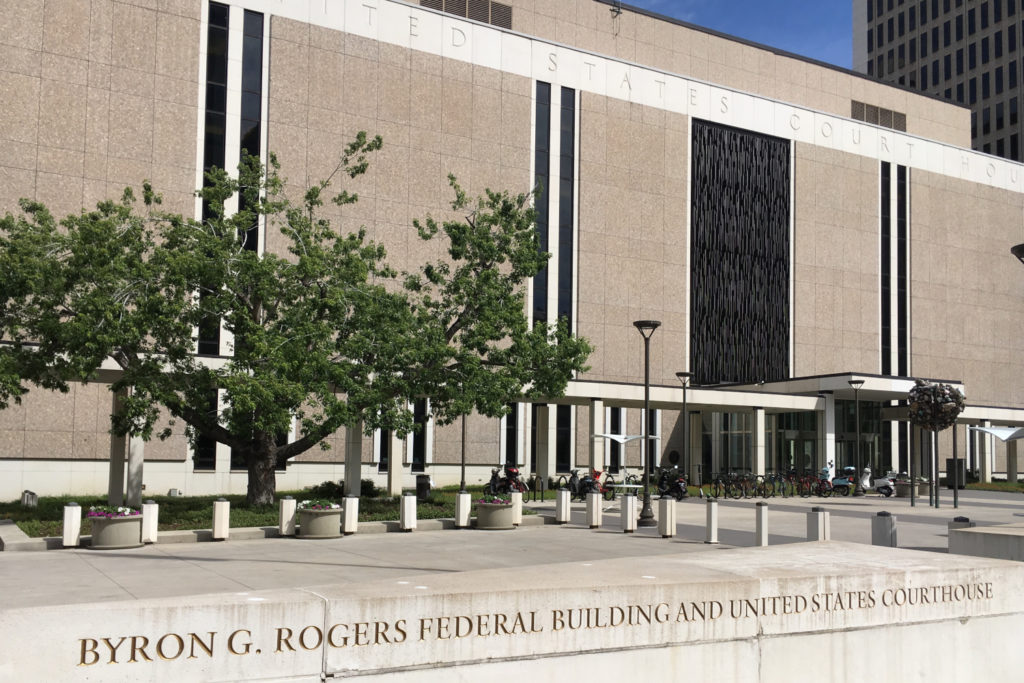By Jeffrey A. Roberts
CFOIC Executive Director
A Colorado statute that criminalizes the public disclosure of all child abuse and neglect records violates the First Amendment of the U.S. Constitution, the 10th Circuit Court of Appeals held Tuesday.
The federal appeals court ruled in a case brought by Denver lawyer Jessica Peck, who says the law prevents her and others from speaking out about government misfeasance and malfeasance without fear of prosecution. In 2019, she sued Denver District Attorney Beth McCann and Michelle Barnes, executive director of the Colorado Department of Human Services.

“Ms. Peck is likely to confront a scenario where she has to choose between either following the law … and forgoing prohibited speech, or representing her clients and holding public officials accountable to the best of her abilities moving forward by making her desired disclosures,” the circuit judges wrote.
The ruling says Peck’s free speech “is indisputably chilled” by § 19-1-307(4), part of a state statute that is intended to protect the privacy of children, families and informants in child abuse and neglect cases.
The judges upheld a subsection of the statute that imposes penalties on those who improperly disclose confidential information “identifying” children, families or informants in child abuse and neglect reports. But they struck down as unconstitutional subsection four, described as “broader, punishing the disclosure of both identifying and non-identifying information” with a class 2 misdemeanor.
Peck, who handles family law and juvenile court matters, said in her lawsuit that she frequently obtains records containing “factually false information detrimental to her clients that is presented as fact.” Although the law allows government agencies and contractors to exchange case information, “it provides no means to allow parents to reveal information specific to caseworker misconduct, but for very limited exceptions, most typically only accruing after a child’s death by homicide.”
The suit referenced a January 2019 Westword article in which Peck accused Denver Human Services workers of filing a case against her client “without a single shred of evidence.” Soon after the article was published, her complaint said, Peck was issued a gag order and threatened with prosecution, even though she didn’t disclose identifying information about a child, family member or others named in a child abuse record.
“Section 307(4) enables Colorado prosecutors to bring criminal charges against those who disclose even non-identifying information from child abuse reports, and Ms. Peck’s prior disclosure to Westword falls in such a category,” the Court of Appeals ruling says. “There is nothing, not even their word, to prevent Ms. McCann or another prosecutor from bringing charges against Ms. Peck for similar statements in the future.”
The ruling adds: “We find a credible threat of prosecution here, which imposes a hardship on Ms. Peck in the form of anxiety over and avoidance of her desired speech.”
Peck is represented by Tom Kelley, an attorney who is past president of the Colorado Freedom of Information Coalition and a current board member. In 2019, he said the lawsuit targeted a statute that is “a bureaucrat’s dream, shielding those responsible for protection of our children from all meaningful accountability. In the process, it tramples the free speech rights of those who would expose official lapses, incompetence and wrongdoing.”
Peck in 2019 told CFOIC the loss of children to preventable violence requires the asking of “some very serious questions.” Too often, she wrote in an email, the state’s child protective services system “is the only source that gets to decide our answers. The agency operates in darkness, empowered to bully into silence the grieving families, reporters and lawyers who dare to question the agency’s role in any derogatory way.”
Follow the Colorado Freedom of Information Coalition on Twitter @CoFOIC. Like CFOIC’s Facebook page. Do you appreciate the information and resources provided by CFOIC? Please consider making a tax-deductible donation.




